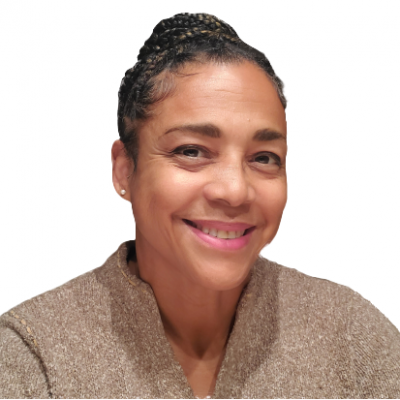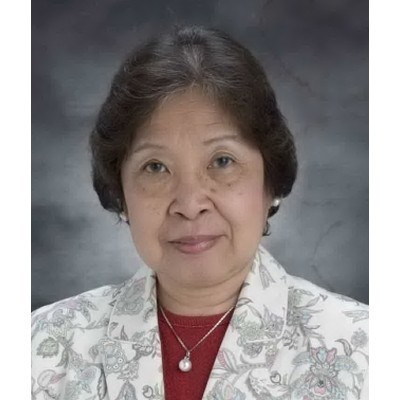Sessions / Keynote
The Trifecta: ELs, The Leaky STEM Pipeline & Culturally Responsive Teaching #2478
One definition of ELs stated the following, “ELs are identified as students who demonstrate a sufficient difficulty in reading, writing, speaking, or understanding the English language: a challenge that “inhibits their ability to learn successfully in classrooms where English is the language of instruction or to participate fully in the larger US society”. Not being able to speak, read or write in English does create challenges on the part of the ill-equipped educator, but with the correct professional learning for teachers, ELs can be seen as valuable participants and contributors in the classroom, regardless of the content area. It is statements like these that continuously feed the belief and practice of keeping culturally linguistic students out of rigorous classes. Research has proven that when ELs are allowed to interact in varied ways to build from what they already know and to develop new technical knowledge at school, ELs can be successful in STEM content and practices while simultaneously building their proficiency in English beyond STEM.
This talk will define and discuss ELs and The Leaky STEM Pipeline's impact on students whose first language is not English and culturally responsive teaching. Dr. de Haan will also include strategies that can be used in any classroom and their connection to TESOL’s 6 Principles for Exemplary Teaching of English Learners and the connection to the Brain.
Dr. Darlyne de Haan, founder of de Haan Consulting, LLC, the non-profit, Mad About Science, Inc. and presently the Director of Curriculum and Instruction of Math, Science and STEM for a large linguistically and culturally diverse school population, is a former forensic scientist and chemist with more than 20 years of experience in STEM. She is a recipient and participant of the coveted Fulbright Administrator Program for Fulbright Leaders for Global Schools, a program sponsored by the U.S. Department of State's Bureau of Educational and Cultural Affairs. She is a strong advocate for changing the face of STEM to reflect the population.
Pluriliteracies Teaching for Deeper Learning in multilingual classrooms: the latest craze, critical responsiveness or responsible activism? #2496
In this session I shall explore the implications for change and development in pedagogic thinking which are urgently needed in our multilingual classrooms to enable our young people to be equipped with the knowledges and skills to be active, contented global citizens in the ‘here and now’ and the near future. This calls on subject teachers and language teachers alike. The ‘literacies turn’ has invited educators and researchers to reconceptualise language (s) learning and language (s) using which bring into question an over emphasis on linguistic fluency. As increasing attention focussing on the role of textual fluency across and within languages gains momentum, so too does an understanding of the underlying principles and practices needed to construct dynamic learnscapes or classroom ecologies for deeper learning. These not only promote integrated learning (CLIL) but identify ways of deepening conceptual development, critical engagement, resilience and agency within and across subject disciplines, languages and intercultural practices. In our rapidly changing landscape, disruptive thinking provides us with a rich canvass on which to draw our futures thinking pedagogic design and practices. The pluriliteracies movement is not going away…….
Content Area Reading for Beginners #2512
Discussions on content area reading proliferate in the literature. Similar topics like academic literacy, disciplinary literacy, efferent reading, all akin to reading in the content area, provide classroom practitioners rich sources in their instructional concerns. Interest in the topic points to a belief embraced by many, i.e. reading as a major gateway to lifelong learning. Reading to learn is inevitably linked with content area reading, aimed at helping learners to be grounded on "knowledge of the world by being able to read the word." The significance of being literate vis-a-vis the demands of a knowledge-based society in an information age is a given and there is no way out than to cope with the demands. Hence, not a few literacy scholars recommend a strong foundation in early literacy where the young will be reading for meaning early on. The idea however should not be misinterpreted as violative of a long time guideline for many teachers that reflect a sequence-sensitive practice in reading instruction in setting goals: first, learn to read and then read to learn. This presentation explores ideas on how instructional activities for beginners aimed at learning to read (which focus on the more mechanical aspects of handling print language like phonemics, phonics, etc.) can be creatively harmonized in the "reading to learn" component. Teachers may find the practices a good try notwithstanding certain predictable tensions/challenges that may emerge along the way. With reading to learn as the overarching goal of literacy instruction, blending early instruction on mechanical skills with relevant content that even simultaneously familiarizes learners, (serendipitously or through explicit instruction) with different genres, text types, and other linguistic devices used by authors in crafting their works is worth looking into. Since content area reading is reading for meaning, learners also get exposed to comprehending processes needed for effective comprehension - the essence of reading. With the foundational skills, hopefully young learners polish their skills through the years, discover the magic of meaningful reading, address problems in their knowledge gaps or inadequate prior knowledge that is necessary as they go through more complex content area reading.
CLIL and language teaching during the pandemic: reshaping the future #2501
The talk will start from a general overview of CLIL and language teaching and learning in Italy during the pandemic, mentioning some initiatives carried out at national and international level and highlighting examples of good practices related to the use of learning technologies. Possible suggestions for future remote, blended or hybrid educational scenarios will be provided.



